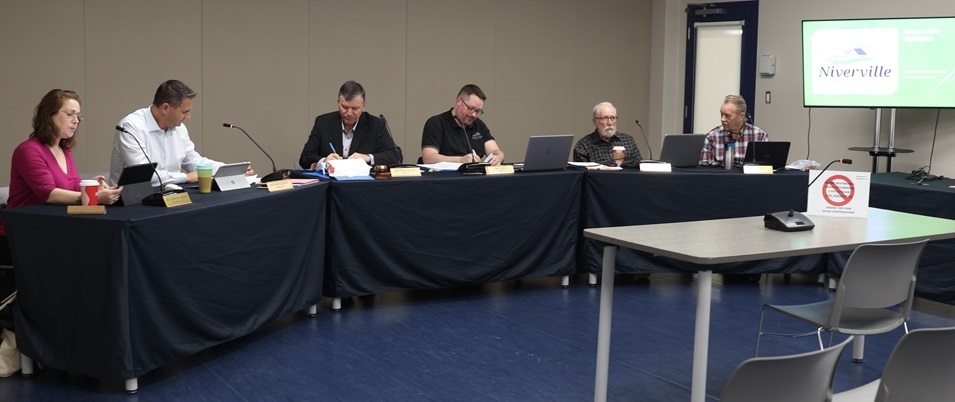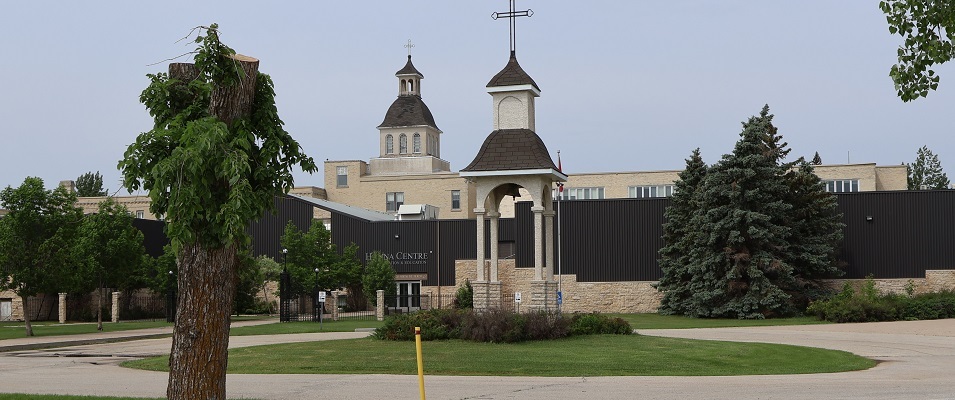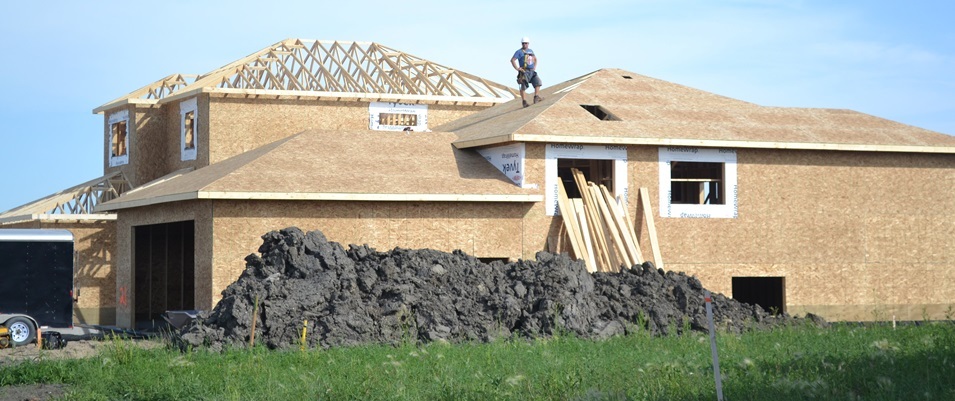
Municipalities in Manitoba were given a short window last month to make a daunting decision regarding cannabis accessibility in their regions. In late November, the provincial government, through the Association of Manitoba Municipalities (AMM), issued a survey to all municipalities asking for a yes or no vote by December 22 regarding their willingness to allow cannabis retailers to set up shop in their communities.
Municipal leaders scrambled. With less than a month to come forward with a decision, AMM regional meetings were called and councils huddled in special-agenda deliberations. But with vague direction coming from both the federal and provincial government, frustration ensued, leaving most municipal councils at a loss on how to make a firm decision based on ambiguous information.
“The legalization of cannabis is a significant policy change with far-reaching impacts in governance, health, and justice,” a provincial spokesperson told the CBC. “Key aspects of the regulation of legalized cannabis will fall to municipalities.”1
The Revenue-Sharing Debate
Since the federal government’s announcement of the new cannabis legislation, set to go into effect July 1, 2018, they have been working on an action plan to collaborate with the provinces on a profit-sharing strategy for the estimated annual $1 billion in revenue that cannabis sales are expected to generate. This threshold is based on the feds’ plan to charge an excise tax of $1 per gram, or ten percent of the final retail price, whichever is higher. On top of that, both federal and provincial taxes will be applied.
Initially, the feds offered a 50/50 revenue split, citing the need to cover costs of administration at the federal level. While almost all provinces and territories signed onto the deal, Manitoba held out. Premier Brian Pallister wasn’t happy with the plan, suggesting that the excise tax wouldn’t keep prices low enough to weed out black market sales. Pallister also disagreed with the ratio of revenue sharing, an imbalance based on the exponential costs provinces would bear in the implementation of increased policing and educational campaigns.
Premiers from other provinces agreed, pressing federal Finance Minister Bill Morneau for a better deal. In early December, a new deal was struck, offering provinces a 75 percent share of cannabis revenues.
“I believe the black market will still thrive with government prices set at $10 per gram plus excise tax,” says one Hanover resident who has used medicinal cannabis products for years. “I can buy it now at under $5.50 per gram from the so-called black market and can grow it for considerably less than that.”
Distribution of Power
While the federal government has laid out a list of strict regulations governing the sale and use of recreational cannabis, each province has been granted a certain autonomy when it comes to governing and determining the locations of retail vendors.
Ontario’s government has opted for full control, only allowing the sale of cannabis at stores run by subsidiaries of the Liquor Control Board of Ontario. The province will offer limited options to rural municipalities in regard to whether or not stores will be located in their jurisdictions.
Pallister is taking another approach, a hybrid model that combines provincial control with private retail outlets, opening the door for residents of Manitoba to own and operate their own stores throughout the province. In addition to municipalities having to respond with their in-or-out position, the province also extended a December 22 deadline to private entrepreneurs who wish to apply for retail sale permits. Pallister’s government has also relinquished control to individual municipalities regarding their participation.
Too Many Unknowns
But many questions still remain. Cannabis legalization is treading into new and relatively uncharted territory. The ramifications are, as yet, unclear. As well, the details of the provincial government’s rollout of the hybrid plan aren’t fully known.
Questions have arisen as to whether cannabis retailers will be strictly standalone dispensaries or sanctioned to operate from within other stores, such as grocery stores, vape shops, or pharmacies. Does the province intend to beef up RCMP detachments, providing more officers to assist in enforcement and control?
It’s questions like these that leave municipal officials at a loss.
The town of Altona voted yes on the matter.
“It was very apparent that, as far as council was concerned, they wished that they wouldn’t have to make this decision,” said Mayor Kelvin Klassen to Pembina Valley Online. “But the feds and the province have told municipalities that ‘marijuana is here. How do you want to be involved?’ So, our discussion centred on whether to allow it in town and, if we do, then we can determine where it is sold.”2
The community of Gimli said no.
“We do not feel comfortable that the provincial government knows exactly what’s going on going forward,” said Mayor Randy Woroniuk to the CBC. “We felt there wasn’t enough information. We felt that the government is not giving us enough time.”3
Come deadline day, 38 of Manitoba’s 61 municipalities contacted by CBC News had said yes to retailers in their communities while seven said no. At least 16 gave no answer to the province at all. The RM of Hanover was among those.
“It’s not a yes and it’s not a no, either,” Hanover Reeve Stan Toews told the CBC. “We’re going to check our zoning bylaws, see how that would all fit in, and we’re waiting on more information because we don’t have enough information to say yes or no.”4
Niverville and Ritchot
Both Niverville and Ritchot councils have also said yes. Niverville’s decision was backed by contingencies, making their affirmative response subject to clarification from the province on the specifics of regulation, and subject to amendments to Niverville’s zoning bylaw to define the appropriate location for a retail outlet.
“Council is of the opinion that it is in the best interest of the community to allow for the production and sale of cannabis,” says Niverville councillor Nathan Dueck.
Mayor Myron Dyck adds that they would still like further clarification on the province’s intent regarding profit-sharing with municipalities.
“The feds and province have an agreement,” says Dyck. “The province and the municipalities do not. This is one great concern for us. We hope that the province will not take the revenue and download the costs to the RMs. It has happened before. This is one answer we wanted before having to say yes or no. This is why the hesitancy by so many RMs.”
Ritchot Mayor Chris Ewen and Deputy Mayor Shane Pelletier have declined comment at this time.
Thankfully, the province offered a backdoor clause in their survey, saying, “The province intends to have an open and ongoing dialogue with municipalities about cannabis and your municipality can indicate a change in position on this subject at any point.”5
This indicates that a municipality’s December 22 response isn’t binding.
Further to that, municipalities have the right to hold a referendum, called a plebiscite, drawing on the opinions of their voting public even after federal legislation has taken effect.
“The plebiscite is an option for councils to use,” says Mayor Dyck. “If [a municipality should] wish to hold one they have until 2022 to do so. A yes vote [today] gives councils the option to hold a plebiscite or to decide no later on. A no vote [today] would only be reversible through a plebiscite.”
A plebiscite must be initiated by a municipal council or by a petition signed by 20 percent of electors in the area.
Immediately after Niverville council’s response at their December 19 public meeting, Niverville residents began to weigh in.
“As a resident and taxpayer of Niverville, I am so proud to live in a community that is socially aware and puts the well-being of its citizens above fear-mongering and ‘alternative facts,’” says one resident. “To remain a vibrant and well-adjusted community, we must be willing to adapt and grow with modern thinking, science, and modern ideas. Thank you, council, for supporting legislation that is economically, ethically, and socially beneficial.”
Another resident told The Citizen, “I’m happy about council’s yes vote regarding cannabis. Niverville [is] a progressive place to raise a family. [There are] major opportunities for the community [here], potentially attracting some of these multinational players to Niverville [which is] a prime location just outside Winnipeg. I realize for some this is a scary proposition, but all the government is doing is taking it out of basements and putting it into proper facilities that can be regulated and monitored, keeping our communities safer and providing taxes to local governments instead of to criminal organizations.”
Others shared their opinions on a local community Facebook thread. Most were in favour of council’s position, while only one publicly remained wary.
Regional Approach
With less than six months to go before legalization, rural community leaders are working together to establish regional approaches to the issue.
“We want to come up with a consistent plan throughout the Pembina Valley region so that we don’t have community pitting against community, or different rules in different towns,” says Winkler Mayor Martin Harder to the CBC. “We’d like to come up on the same page.”6
Similarly, Niverville’s council has been actively working with other councils of the southeast.
“The Town of Niverville has various ongoing meetings with our neighbours,” says Dyck. “We are part of the Manitoba Capital Region where we meet with all municipalities around the City of Winnipeg, including our immediate neighbours in the RMs of Ritchot and Tache. This is a chance to discuss issues that relate to all of us and collaborate and share ideas.”
Niverville’s council also met with leaders from Hanover, Ste. Anne, La Broquerie, and the City of Steinbach to discuss their options.
Ultimately, only the province has the authority to accept retail sales requests from Manitoba entrepreneurs. Municipalities can determine if and where these vendors will locate in their jurisdiction through zoning bylaws. At this point, Dyck says, they have no idea how many entrepreneurs have applied or how many rural retail locations the province will mandate.
Federal Restrictions
The federal government has established regulations on the plant’s sale and use. Protecting the country’s youth is high on that list, so they have set a minimum age limit for sale and purchase at 18 years of age. Provinces have the authority to raise that age limit. Manitoba and other provinces have changed the minimum age to 19.
Heavy penalties apply to those who give or sell cannabis to minors. Penalties can reach as high as $5 million in fines or up to 14 years in prison. The packaging, labelling, and display of cannabis is highly restrictive as well, with the intent to reduce the product’s visibility and appeal to young people.
Possession of cannabis products for those over 18 will be restricted to a maximum of 30 grams per person at a given time. While the federal government’s rules allow for users to grow up to four plants on their personal property for personal use, Manitoba’s government has determined that no plants may be grown for recreational purposes here without an authorized license to sell and distribute.
Should any province decide to abstain from creating a regulated retail sales framework, residents will still be allowed access to federally licensed producers online.
Federal law has also set strict industry-wide standards for manufacturers and distributors, including quality control, promotional modalities, serving sizes, and potency, as well as the types of products available for legal sale. At this point, edible cannabis products will not be available for sale, although federal laws regarding these are expected to come into effect one year following the July 1 legislation.
According to the Government of Canada’s website, “These measures would complement a public education and awareness campaign informing Canadians, including youth, about the risks and harms of cannabis use. In Budget 2017, the Government committed $9.6 million over five years to a comprehensive public education and awareness campaign and surveillance activities.”7
Manitoba’s Added Legislation
Provinces and territories have full autonomy when it comes to licensing and overseeing the distribution and sale of cannabis, subject to federal conditions. These can include lowering the personal possession limit and restricting where adults are allowed to use cannabis, such as in public or in vehicles.
The province has already established that sales will be regulated through the Liquor and Gaming Authority of Manitoba, which has now been changed to the Liquor, Gaming and Cannabis Authority (LGCA). This agency will regulate the purchase, storage, distribution, and sale of cannabis while Manitoba Liquor and Lotteries Corporation (MLLC) secures and tracks the supply of cannabis sold in the province. They will also issue grants to companies interested in promoting safe consumption. Two percent of the province’s net revenue on cannabis has been allocated for promotional campaigns.
The LGCA will allow for two types of private retail outlets. One will be age-restricted, preventing the entrance of anyone under 19 years of age, similar to nightclubs. The other will be open to any age but be required to follow strict rules regarding the display of cannabis products, similar to the sale of cigarettes. In each case, operators will need to obtain a retail license and ensure appropriate, standardized staff training.
Provincial penalties will be similar to those for alcohol, with fines of up to $100,000 for individuals or one year in prison, or both. Corporations facing convictions of unlawful sales could face up to $500,000 in fines.
Pallister has stated that the province’s goal would be to see cannabis retail outlets accessible within a 30-minute drive for 90 percent of Manitoba’s population.
What Control Do Municipalities Have?
The provincial plan leaves municipalities with final authority over whether to allow retail outlets in their jurisdiction. They will also have the flexibility to regulate local retail sales and create zoning laws to determine an outlet’s proximity to places such as schools and daycares. It is so far unclear whether the province will profit-share with municipalities or give them unrestricted power on how to spend those tax revenues.
While municipalities have every right to expect a cut of the revenue, other factors might also become incentives for RMs to get on board. Job creation and property tax distribution is always at the forefront of municipal leaders’ minds.
Delta 9 Biotech is currently Manitoba’s only licensed producer of medical cannabis. It operates in an 80,000-square-foot building and, with the new legislation, hopes to expand to include another 55,000 square feet of space. On July 1, it is expected that other large operators will receive licensing to keep up with the recreational demand. A municipality’s willingness to not only allow but encourage these kinds of production companies to locate in their area could have significant impact on the economic development of their region.
Fallout
Though a billion-dollar annual revenue base is certainly significant, legalization is likely the only way to demonstrate to Canadians just what the full benefits might look like.
According to Forbes.com, “The legal cannabis market [in the U.S.] was worth an estimated $7.2 billion in 2016 and is projected to grow at a compound annual rate of 17 percent. Medical marijuana sales are projected to grow from $4.7 billion in 2016 to $13.3 billion in 2020. Adult recreational sales are estimated to jump from $2.6 billion in 2016 to $11.2 billion by 2020.”8
But what about the current cost of the war on drugs? Of course it won’t be eliminated altogether, given the ongoing pursuit of Class 1 drugs such as heroin, cocaine, and LSD. Removing marijuana from that scenario should conceivably reduce enforcement, judicial, and prison costs currently incurred on an annual basis by the Canadian government.
“The country can build as many prisons as there is space, but the simple fact remains that criminalizing drug use has not and does not produce results,” wrote Omer Aziz for The Globe and Mail. Aziz added that the current cost of drug enforcement in Canada is greater than what the country spends on First Nation health services, veterans’ health care, health research, and public health programs combined.9
In the end, time and strategic legislation will be the determining factors for the effectiveness of this new journey our country is about to embark on.




















